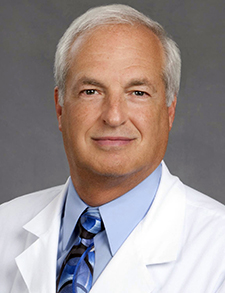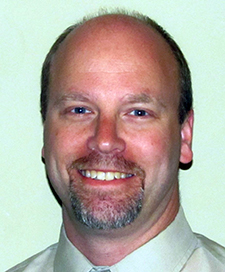Hospitalists don’t focus much on the ins and outs of perioperative care in medical school and residency, but rising surgical volumes in recent years, combined with the ever-growing recognition that hospitalists manage inpatients best, has led to a boom in using hospital medicine professionals to bookend care around procedures.
So, if it’s not taught well up front, where are hospitalists going to learn best practices, clinical pearls, and rookie mistakes to avoid?
Welcome to SHM’s perioperative/co-management special interest group (SIG).
The online community is one of 27 SIGs sponsored by SHM to create communities of hospitalists around topics of interest, practice areas and/or care models.

Dr. Cohn
For co-management, the group started in 2018 and is led by Steven Cohn, MD, medical director of the UHealth Preoperative Assessment Center and Jackson Memorial Hospital medical consultation service at the University of Miami Miller School of Medicine in Miami, and Kurt Pfeifer, MD, chief of the section of perioperative and consultative medicine in the department of medicine at the Medical College of Wisconsin in Milwaukee.

Dr. Pfeifer
“More and more hospitalists are having to participate in perioperative medical care all the time,” Dr. Pfeifer said. “And yet it’s an area that many hospitalists feel that they’re not fully prepared for in residency training. We’ve previously had much experience over the years working with other professional organizations in promoting perioperative medicine within internal medicine and hospital medicine, and that’s when SHM reached out to Steven and me to help lead this group, which I think has been very active to date. We are probably one of the more active special interest groups, starting with fewer than 100 members at our first meeting, and we now have more than 750.”
The group started a monthly journal club, webinars where one of the authors of a newly published study is invited to present.
“It’s very helpful to be able to have access to the people who are actually producing the research and publishing these papers,” Dr. Cohn said. “In addition, we’ve been using a case of the month, a clinical case submitted by one of the people in the group, and it’s open for people to chime with what they think they would do. And then, the following month, the person who submitted the case outlines what the issues were and what they actually did. It’s very helpful for people to see the different opinions and then what the actual outcome was. We also have an open forum for members to ask questions about difficult cases, management decisions, or other related issues.”
In addition, Dr. Cohn edited and authored a book that was published in 2021 with the help of some group members, “Decision Making in Perioperative Medicine: Clinical Pearls.” And Dr. Pfeifer developed an online educational tool (www.preopevalguide.com).
It’s the combination of experts and novices that creates the sense of community in the SIG, Dr. Pfeifer said.
“It’s so important for providers working in a space that they are uncomfortable or new with, to have a community of support,” he said. “The challenge at a lot of institutions is that there isn’t a community of support there. There are no other hospitalists there yet who know perioperative medicine very well. Without having that kind of local support, it’s even more important that you find it outside. That’s what our special interest group can provide—that community of people you can go to and lean on when you need assistance with things.”
Whether it’s the monthly journal club, or a case-of-the-month discussion, or just Dr. Cohn posting a recent article for others, the repetitive cadence of the SIG is another factor to its success.
“COVID has made it a bit of a challenge,” Dr. Pfeifer said. “But, if you lose momentum like that, it’s often very hard to keep things rolling and keep people engaged. Just like with the in-person meeting—you don’t really want to go more than a year without it because then it starts to fall out of people’s memory as something important to them. So, I think the special interest groups play an important role for SHM in that way, to keep people engaged, make them continue to see SHM as their professional home.”
The challenges of COVID-19 also meant that the SIG served as a place for hospitalists to be honest about challenges.
“It’s so important to have a group you can email and contact and text during that period because nobody knew what to do,” Dr. Cohn said. “We didn’t know what to do with perioperative patients or preoperative evaluations for patients who had COVID. The whole testing process, canceling or postponing elective surgery cases as everything was evolving, you also had a place where you could go and ask people, ‘What are you doing in your hospital?’”
“We’re still struggling mightily with everything,” Dr. Pfeifer said. “You’re never on solid ground. Things are always shifting, especially for people who might be working in places where there isn’t as much support structure built in for keeping people updated. Societies, SHM in particular, are really important to help with that.”
Richard Quinn is a freelance writer in New Jersey.